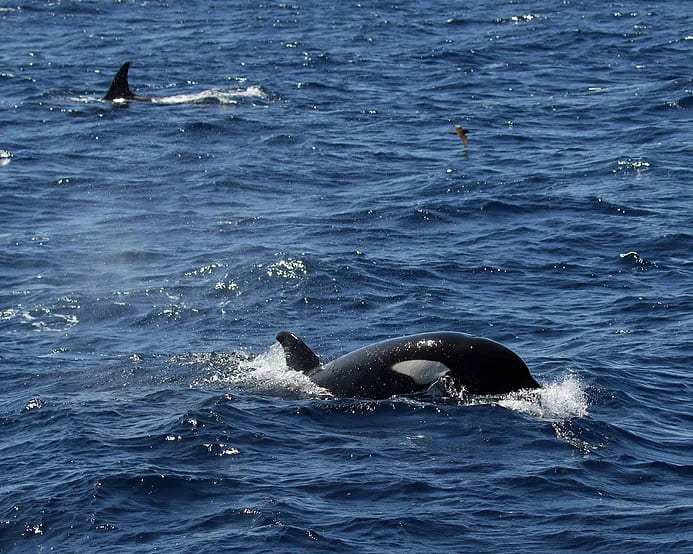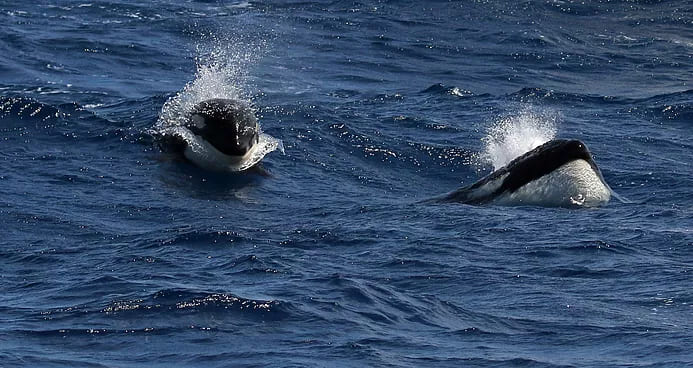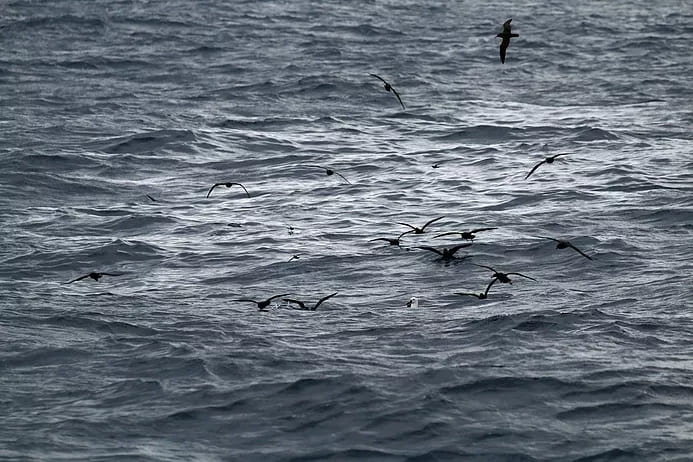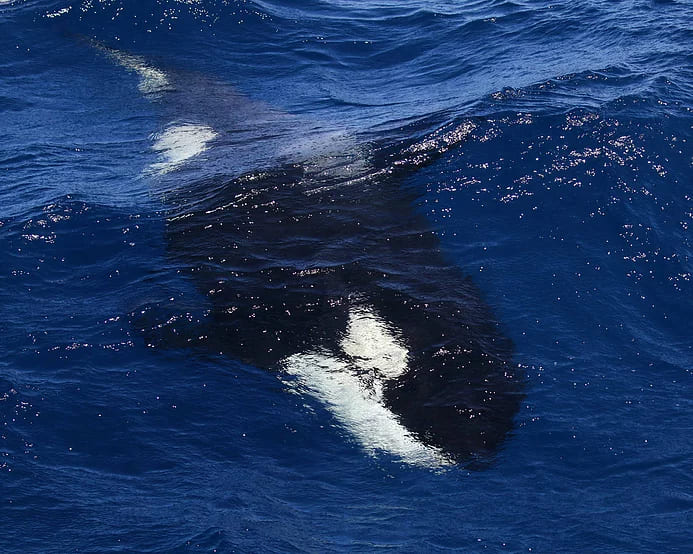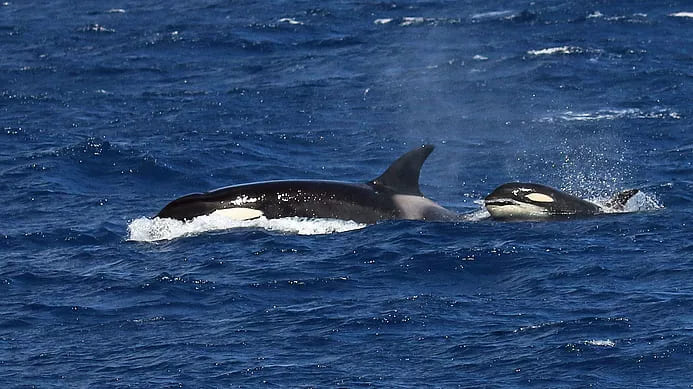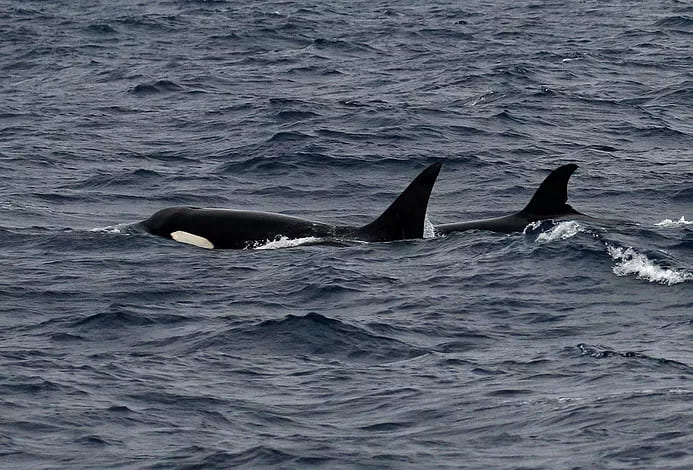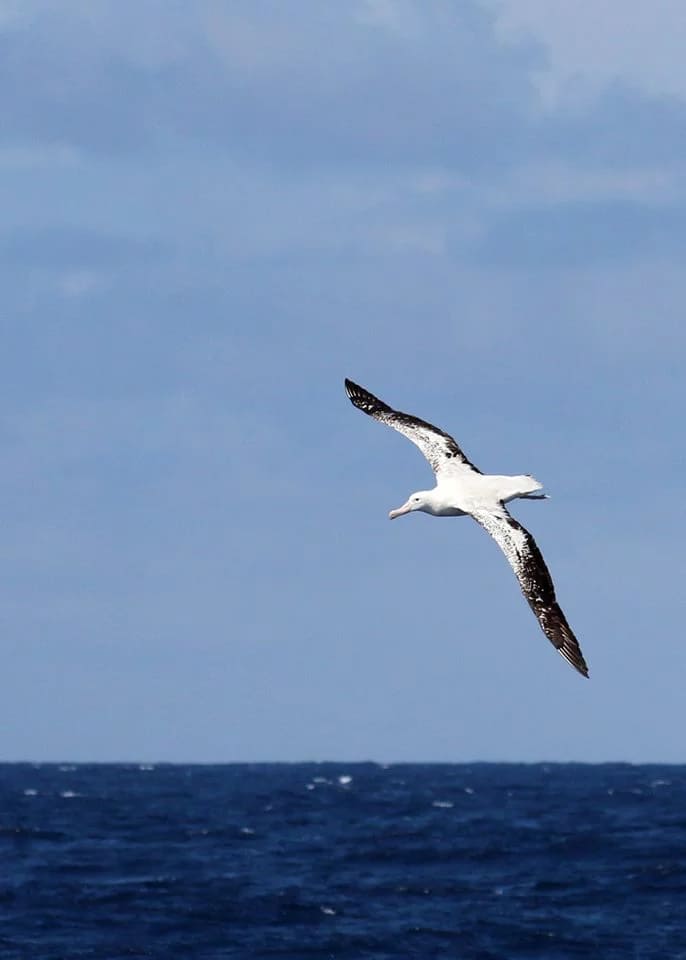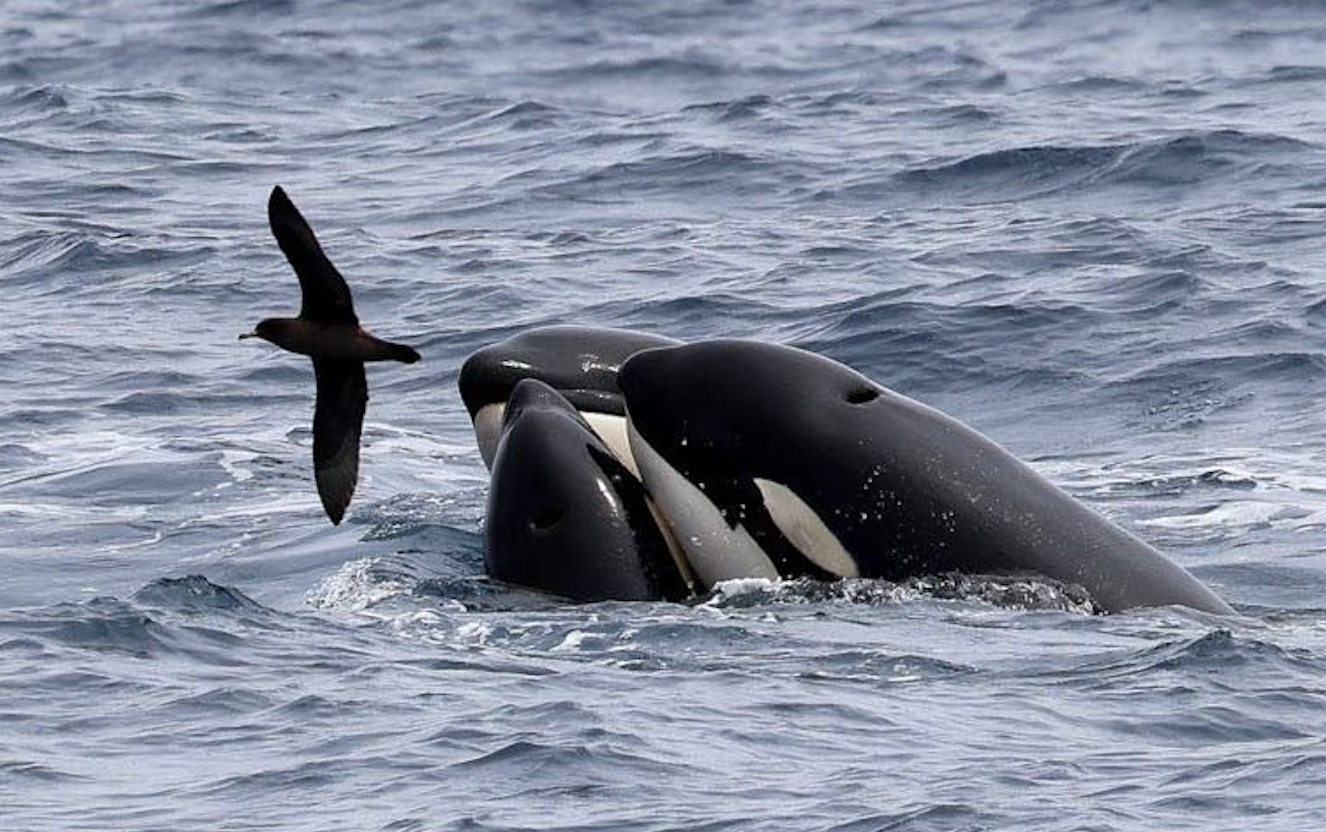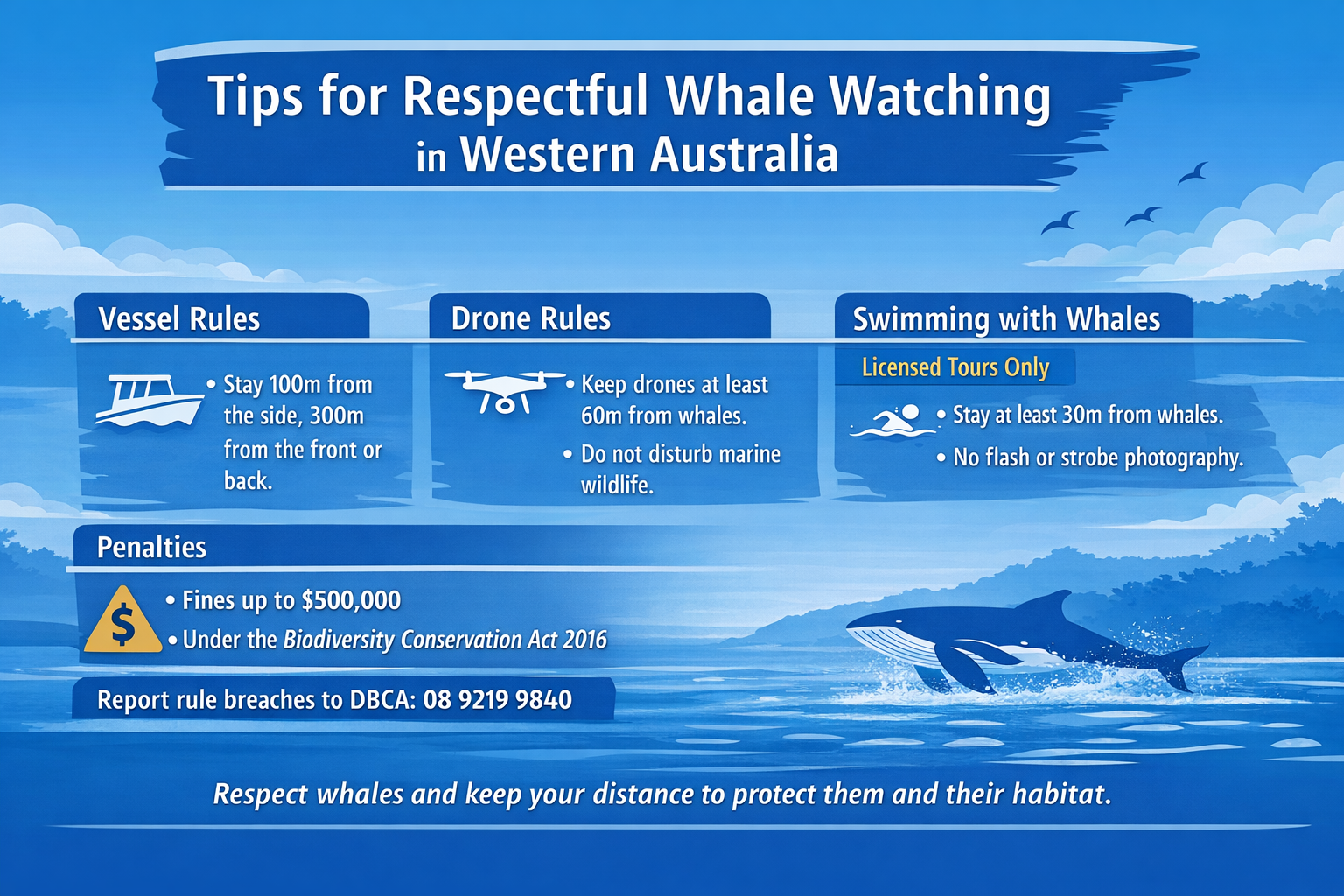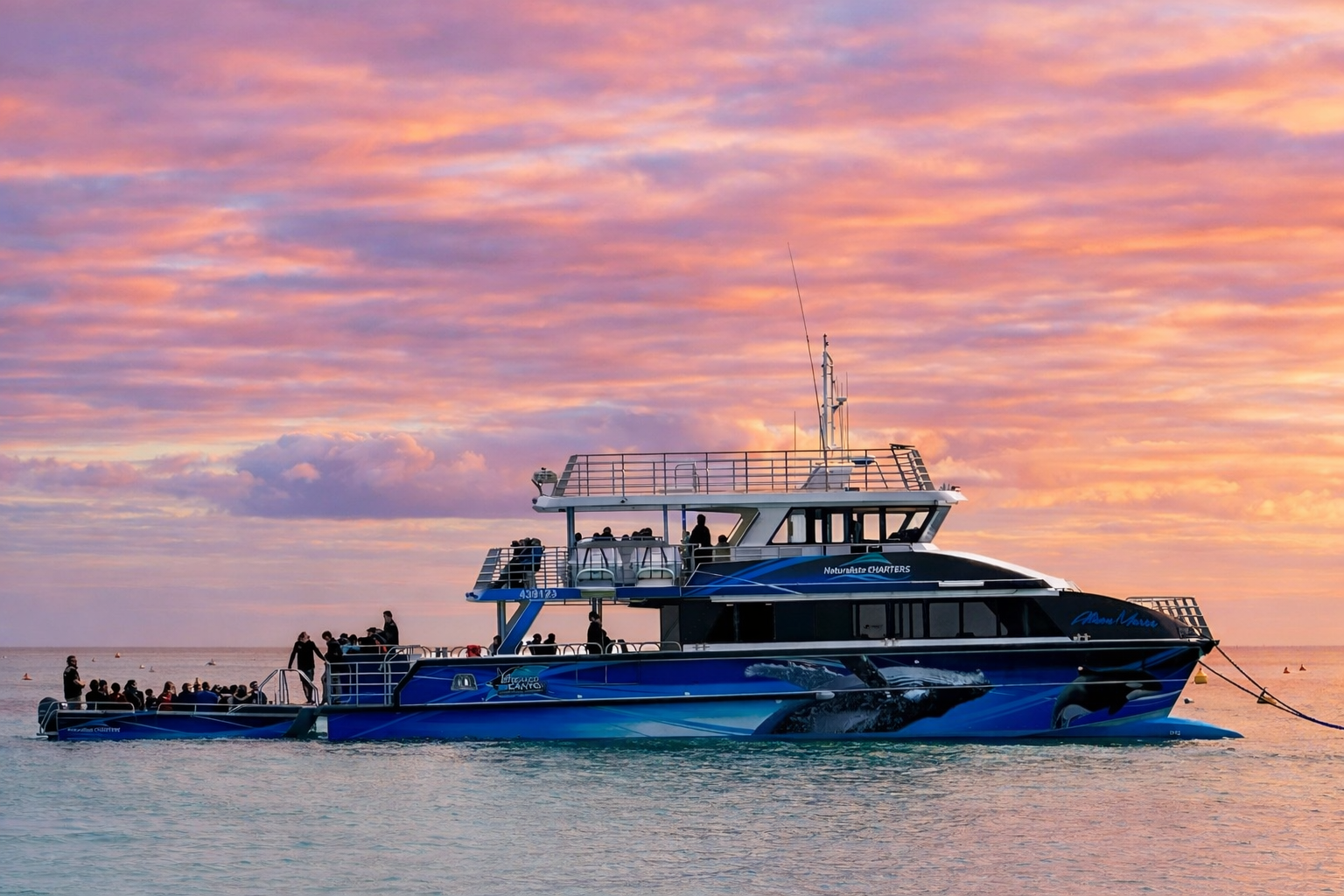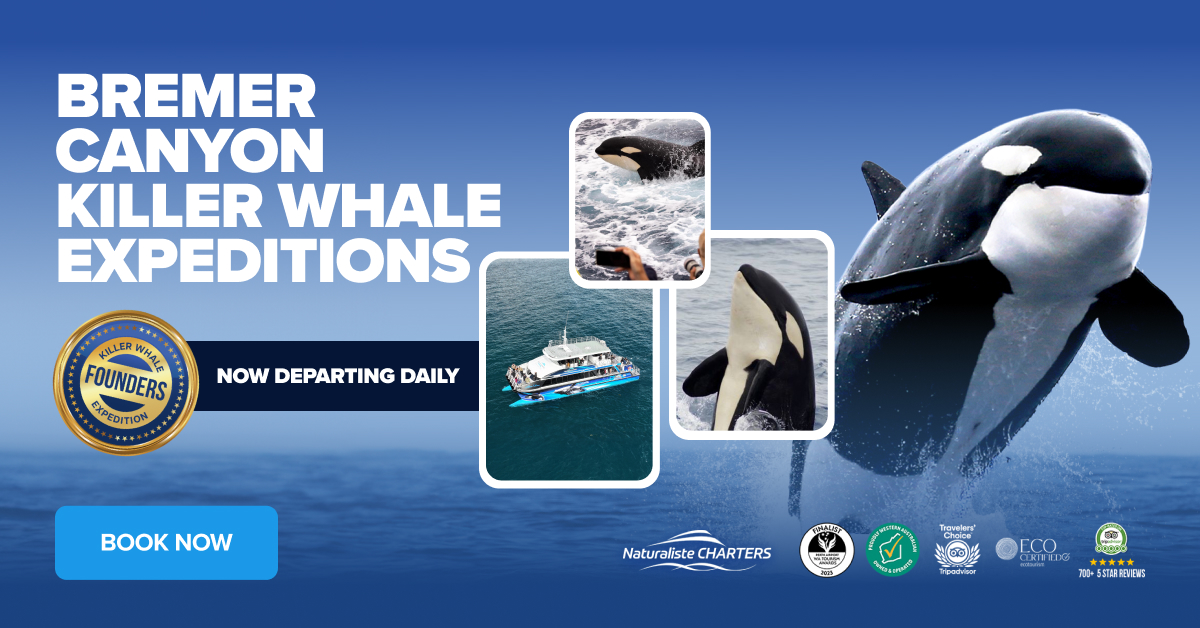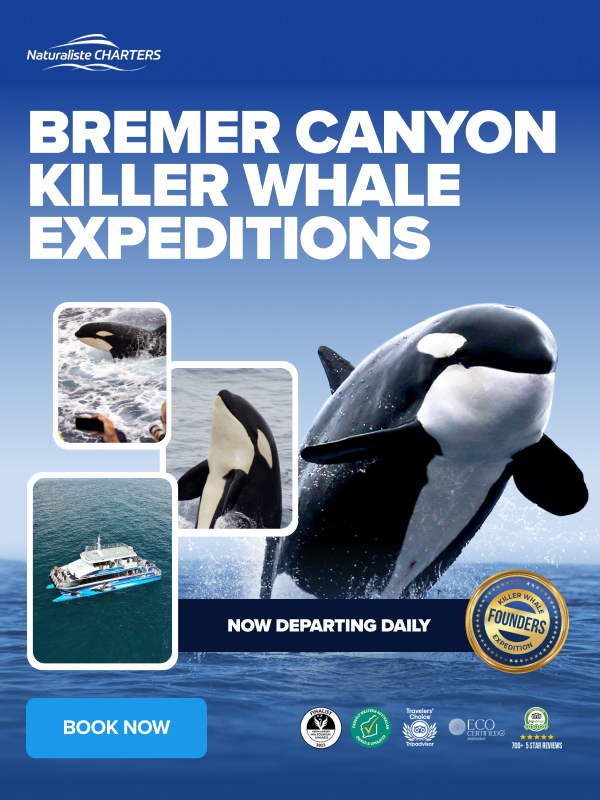Birds filled the air as we arrived at the canyon today. We pointed out the diverse range of species to the bird enthusiasts on board, from the magnificent Wandering Albatross, with the largest wingspan of any bird, to the tiny Wilson’s Storm Petrel that barely tips the scales to 20g. Oil slicks coated the small swells, glistening in the sun. The killer whales had clearly been busy. The feast was likely over though because as soon as we arrived, they charged over to our vessel, swimming just under the surface, turning on their sides to eye the watchers on the bow. They were difficult to track as they turned in toward us again, and then again, clearly entertained by the noisy appreciation of the watchers on deck. The pod began to move off, and we followed, enjoying our sightings as they surfaced.
As we scanned the seas we sighted a different blow. Ahead, a bull sperm whale logged on the surface. Eventually the giant made a sounding dive, raising flukes to the sky. We approached the second sperm whale, a double delight, as this individual too sounded before retreating to the darkness of the canyon’s depths in search of his next meal.
Sunlight only penetrates 200m into the ocean, yet the sounding sperm whales were now likely 1000m beneath our keels. Sperm whales use echolocation to hunt and navigate in darkness just lik bats. Both have excellent eye sight but that’s not much use in the dark.
Within a few moments of diving, shafts of sunlight start to disappear, and sperm whales start echolocating. One half of their nasal cavity is sealed off to produce the noise. At about 200dB, this explosive ‘click’ is one of the loudest natural sounds in the ocean.
The back of the skull is shaped like an enormous convex mirror so sound travelling towards the tail is gathered, focused and bounced forward. The sound intensifies as it travels through a series of fatty lenses full of spermaceti oil, until it forms a narrow beam that’s projected out into the ocean.
So the click is actually a double click, the first being the source and the second being the beam that is ejected from the jaw milliseconds later. Scientists can even measure the length of Sperm Whales and the composition of whole groups of whales, by listening to the interval between these clicks, which corresponds to twice the distance between the nasal cavity and skull.
Echoes are then received along the dense jawbone and processed by that enormous brain. We can’t begin to imagine how the world ‘looks’ to an animal who sees with sound but it’s clearly high enough resolution to catch small, fast-moving prey such as squid. When squid are detected, Sperm Whales even produce a buzz, rather like bats – as they home in on prey, the clicks get more rapid, enabling them to fine-tune their detection and zero in on their meal.
We returned our attention to the orca, and approached another group of familiar fins. The group were more interested in matters below the waves, surfacing for a few minutes, before diving for longer periods of time. It soon became clear why. Small, fresh oil slicks began to appear. There were no surface signs of what the prey may have been, however it was clear they were making a contribution to the 5% of their bodyweight they need to consume each day. We’ll let you do the maths to work out how much food an adult weighing 6-8 ton will need to eat each day..
Until tomorrow,
The Bremer Canyon Crew

